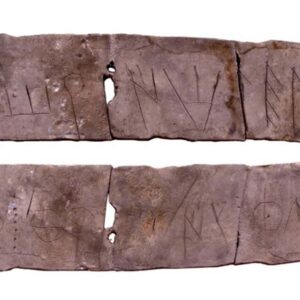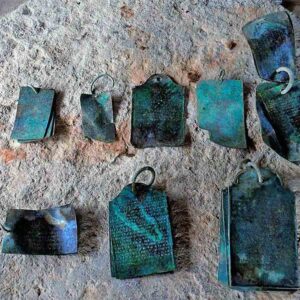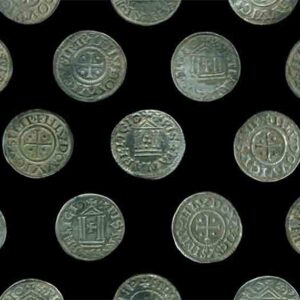Up to date
26 Might, 2022 – 22:39
ashley cowie
Roman Graffiti Exhibits Carved Phallus With Insult Discovered at Vindolanda Fort
- Learn Later
A large, engraved penis has been found on the Vindolanda Roman fort in England, with a transparent insult carved above it. The Roman graffiti insult, aimed toward one other Roman soldier, reads: “You shi**r!”
Suppose again to high school for a second. Each class had a famend phallus artist who would scratch, chalk, and carve their arts onto desks, chairs, blackboards, and faculty luggage. Winter introduced the prized media of snowy windscreens and big male intercourse organs would line the streets of any faculty neighborhood.
Creating artistically enhanced penises was a pastime born within the Roman interval. So common was the pastime that archaeologists in England are not phased after they uncover a carved penis on a smashed stone at a Roman fort. They’re, nevertheless, greatly surprised when a penis is accompanied by Roman graffiti directed at one other Roman soldier. Particularly when the insult includes the phrase “shi—r.”

The Vindolanda Roman fort is simply south of Hadrian’s Wall, and it was right here that the carved stone phallus with the Roman graffiti insult was found in a rubble trench. (Mramoeba / CC BY-SA 4.0)
Eradicating The Roman Graffiti Penis From The Vindolanda Trench
Vindolanda, the place the Roman graffiti labelled phallus was discovered, was a Roman auxiliary fort situated simply south of Hadrian’s Wall in Northumberland in northern England. The fort was occupied between 85 AD to 370 AD. In response to Vindolanda Charitable Trust the traditional carved stone with the picture of a phallus and Roman graffiti was discovered “under a 4th century cavalry barracks, discarded into a protracted trench stuffed with rubble.”
- The Romans’ Playful Aspect Revealed By Prank Mouse in Vindolanda
- Newest Vindolanda Discover: A Unusual Bare Man on a Carved Aid Pill
Dylan Herbert, a retired biochemist from South Wales, was volunteering with the Vindolanda Belief when he found the carved penis and insult. The discoverer mentioned he had excavated lots of rubble over the week main as much as the invention. He mentioned the upturned carved slab had been getting in his method, and that he was glad when he was advised he may lastly “take away the penis from the ditch.” A spokesperson for the location mentioned the stone “offers us a captivating window into the feelings of somebody within the third century.”

Dylan Herbert, a retired biochemist from South Wales, was volunteering with the Vindolanda Belief when he found the carved penis and insult, proven right here simply to the correct of his left foot. (Vindolanda Charitable Trust)
The Penis, In Historical Roman Magic And Faith
In historic Roman magic and faith the fascinus or fascinum was a potent image of energy and fertility. It was additionally the divine phallus that was depicted on amulets, talismans, and grave effigies. In spell work the penis image invoked divine safety and Pliny mentioned it was a “medicus invidiae,” a strong protection in opposition to the evil eye. Nevertheless, the specimen scratched into the Vindolanda stone is only a arms down old-school penis insult!
The smashed stone slab encompasses a 15.7 x 6 inch (40 x 15 centimeter) lengthy phallus beside the letters “SECVNDINVS CACOR.” A direct translation is: “Secundinus, the s**ter.”
Clearly, about 1,700 years in the past somebody had it in for Secundinus. Dr Andrew Birley is CEO of the Vindolanda Charitable Belief and he mentioned, “the writer clearly had a giant drawback with Secundinus and was assured sufficient to announce their ideas publicly on a stone.” Moreover, Birley added that he has no doubts that Secundinus would have been “lower than amused” by this insult.
Phalluses Don’t Shock Roman Researchers Anymore
An article in regards to the discovery in Daily Mail says phalluses “should not unusual on Hadrian’s Wall, with a complete of 13 now discovered on the historic web site.” Let’s for a second take into consideration the thoughts of the writer of the insult. We all know he was a Roman soldier. Whereas not all of us have been within the navy we are able to all bear in mind being in groups once we have been youthful. Optimistic staff tradition requires sturdy management over a gaggle of like-minded folks, and maybe one of the simplest ways to bond a gaggle of troopers is to encourage Squad Mentality.
- Archaeologists Uncover Backbone-tingling New Hoard of Roman Letters at Vindolanda Fort
- Heavy Hitters: 2,000-12 months-Previous Boxing Gloves Recommend Roman Troopers Used to Duke It Out
In response to Engage for Success Squad Mentality creates “particular person and collective readability in regards to the staff objective.” Furthermore, “People perceive, make the most of and develop the strengths of the staff, development and Wanting-to-Win Mindsets are contagious and there’s a set of ground-rules and clear expectations of each other.” Nevertheless, in a navy context, Squad Mentality brings with it these pro-penis artists that by no means dropped their darkish arts after highschool.
The researchers concluded that the insult serves to remind us that whereas the Roman military was extraordinarily brutal to the indigenous inhabitants of Britannia, they weren’t shy to throw insults at one another. This newly found penis and insult, in accordance with the archaeologists, is “a superb little bit of social commentary from the traditional previous.” And one which they’re positive will amuse guests for a few years to come back.
Prime picture: This phallus has insulting Roman graffiti above it that was meant for one more Roman soldier. The insult reads: “You shi**r!” Supply: Vindolanda Charitable Trust
By Ashley Cowie





